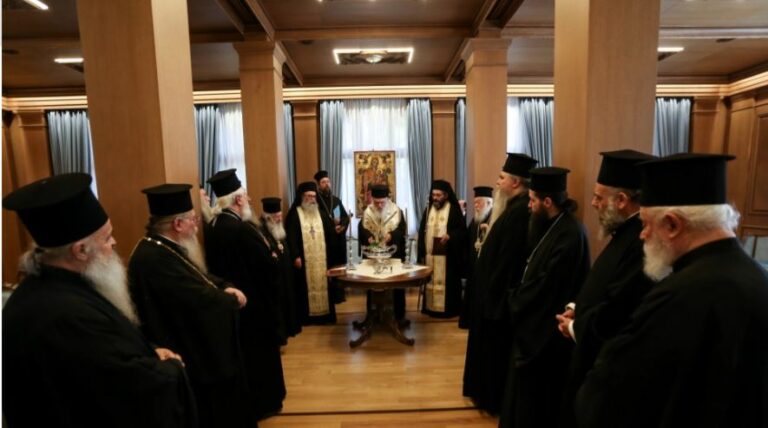The US Supreme Court in a 5-4 decision overturned Roe v. Wade, the landmark ruling that established the constitutional right to abortion which had since 1973 permitted abortions during the first two trimesters of pregnancy in the United States.
Almost half the states are expected to outlaw or severely restrict abortion as a result of the Supreme Court’s decision on a Mississippi case known as Dobbs v. Jackson Women’s Health Organization.
The decision caused widespread reactions around the world, with many leaders chiming in to condemn the ruling. The issue of women’s rights to choose what to do with their bodies and the pro-life movement has been a long-standing controversial and often contentious matter.
The fetus is a complete and whole human being from the moment of its conception, according to the Greek Orthodox Church, calling voluntary abortion murder and does not accept it. The Church bases its stance on Biblical passages and the tradition of the Church.
The Holy Synod of the Church of Greece reiterated in 2020 its firm position that it considers voluntary abortion as murder and therefore does not accept it.
Specifically, during the two Sessions in 2020, the Permanent Holy Synod approved, among other things, the decision: to position the fetus as a complete and whole human being from the moment of his conception for this and considers voluntary abortion as murder and does not accept it.
The introduction of an “unborn child” day as a day of remembrance by the Church against abortion in the past summer has provoked strong reactions from women who defend the right to abortion. The Holy Synod of the Church of Greece accepted the request of the anti-abortion movement “Let me live”, for the establishment of an “unborn child” day establishing as the day of the “unborn child” every first Sunday after Christmas.
Ask me anything
Explore related questions





